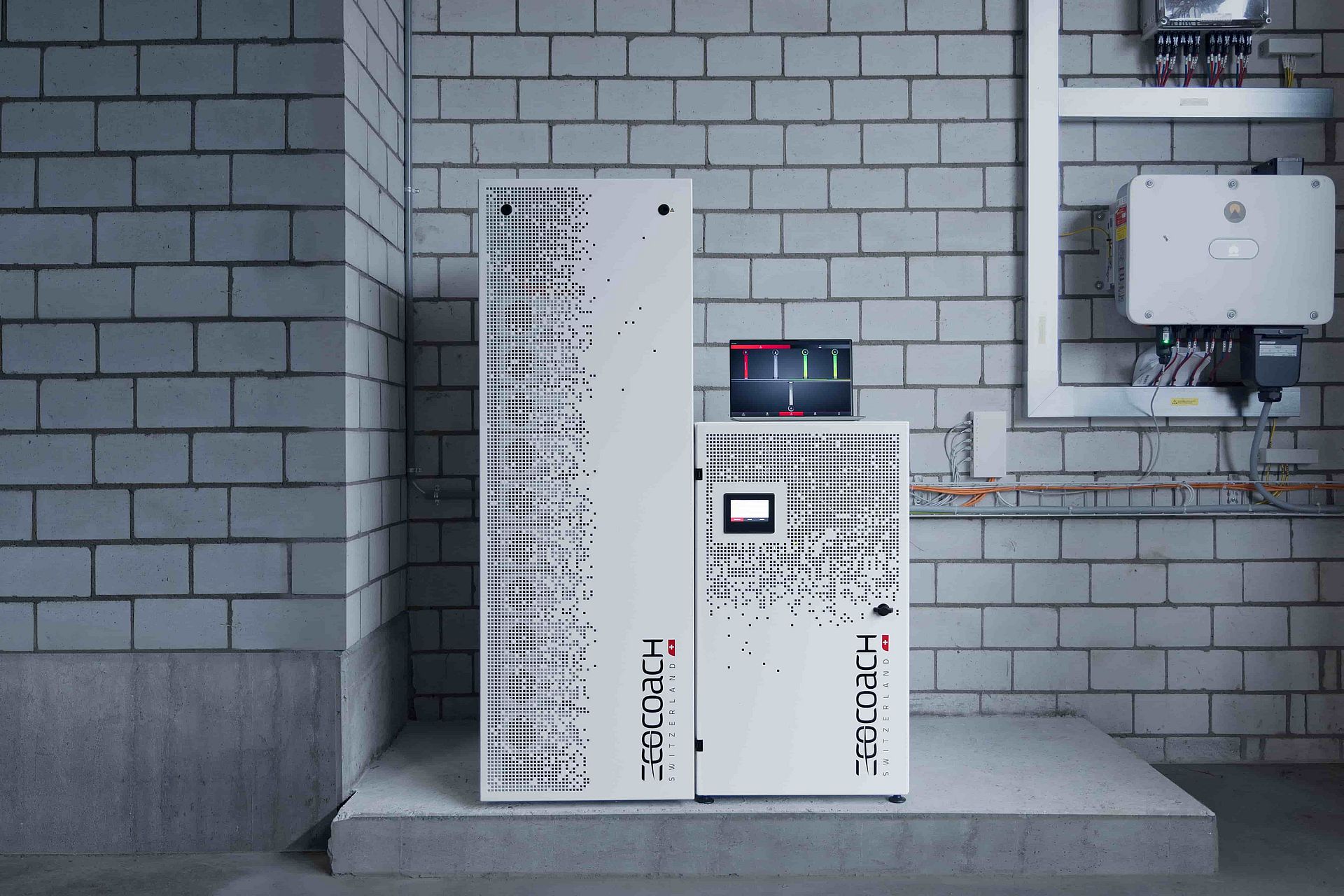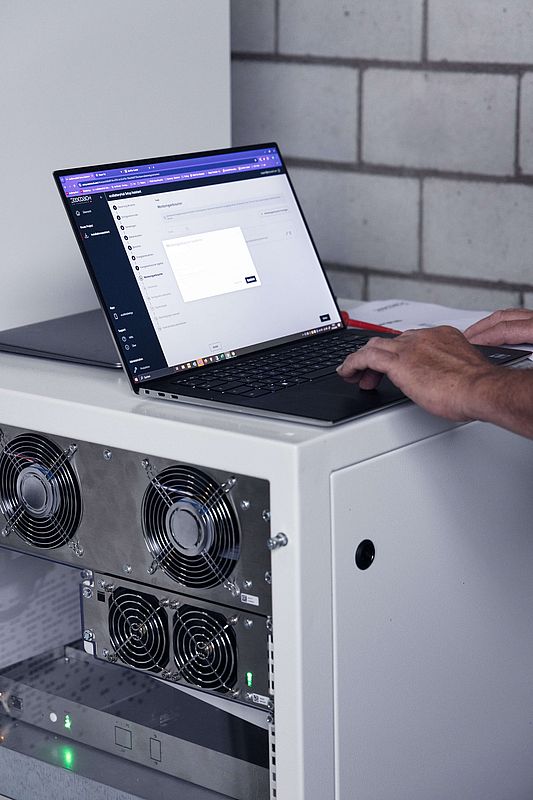ecocoach delivers new generation of stationary power storage units
Six years after the market launch of the first ecocoach battery storage system, the new flagship with an integrated energy centre from the canton of Schwyz (CH) follows.

The new battery systems are available for 26 to 390 kilowatt hours and have charging and discharging capacities of 16 to 150 kilowatts. The modularity offers the advantage that operators can scale systems anytime and adapt them to higher future requirements. The professional energy management system from ecocoach, which other battery storage manufacturers also use, offers true multi-use. In other words, it can handle several applications at the same time. This includes optimising the self-consumption of self-generated electricity via photovoltaic systems or small wind turbines, for example. It also optimises peak load management to avoid high power charges from the energy supplier for peak times in commercial operations. However, load and charging management should also be used to optimise the use of existing infrastructure for charging electric cars and the increasing use of all-electric trucks.
Safe and networked in everyday operation
All battery storage systems can have three-phase mains backup in the event of a power failure. This means that a real backup power grid is available in the building in an emergency. Combined with PV systems or combined heat and power units, an independent power supply can be maintained for several days or even weeks. The ecocoach systems are therefore also used, for example, in care facilities or in livestock farming, where a constant power supply is vital.
The pilot phase also includes functions that will automatically allow owners of battery storage systems to participate in the balancing energy market in the future. This will generate income if free storage capacity is made available to compensate for fluctuations in the electricity grid. In addition, systems for cost optimisation in the case of flexible grid tariffs and for forecasting electricity generation and consumption are also being tested. Based on this, the battery storage systems can be charged and discharged in a cost-optimised manner. The corresponding functions help to amortise the investment in battery storage systems more quickly.
Even when designing the first battery storage systems, attention was paid to maximising simplicity during installation. The new generation of storage systems is now even easier to integrate into the building and connect electrically. On the software side, an installation aid guides specialist installers step by step through the entire process so that the energy centre can be commissioned quickly and without programming knowledge.
The system and software were developed entirely in Switzerland. On the hardware side, the manufacturer relies on components from globally established companies.
Roadshow successfully launched
ecocoach already informed its sales partners in June and July of this year. These include electrical installation companies as well as wholesalers. The best-known partner is the Bosch Home Comfort Group with its Buderus brand, which offers solutions throughout Germany and neighbouring Luxembourg. The customer base also includes residential and commercial property investors in Switzerland, Germany, Austria and Luxembourg.
To further publicise the new product, ecocoach specialists are currently touring the countries. The roadshow was successfully launched with fully booked events at the Buderus branches in Esslingen and Münster. Building technology planners, tradespeople and installers can now register for further dates at Brunnen's company headquarters or partner companies in Freiburg, Cologne, Esch-sur-Alzette, Hanover, Lollar, Munich and Leipzig.
Initial commissioning completed
The first systems have been used practically at selected pilot customers for several months. After customers regularly ordered the new system in July, the first two battery storage systems were put into operation at the end of August. One went to a farmer from the canton of Zurich who wanted to optimise his consumption. The other provides security in the event of grid failures at a bank branch in Fribourg, Switzerland.

